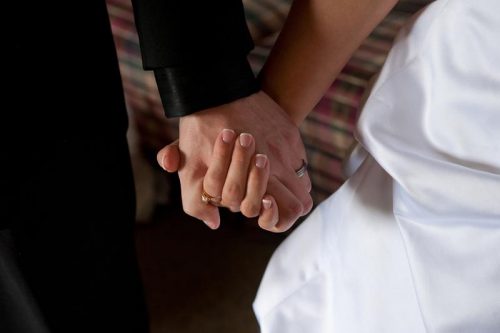Q: Has the Catholic Church ever considered for canonization an individual who had not been a Catholic? If not, why not? Are we still suggesting that only Catholics go to heaven? (Heber Springs, Arkansas)
A: Let me answer your last question first. The Catholic Church’s teaching is most clearly expressed in the Catechism of the Catholic Church.

Quoting from the Second Vatican Council’s Dogmatic Constitution on the Church, “Lumen Gentium,” the catechism states: “Those who, through no fault of their own, do not know the Gospel of Christ or his church, but who nevertheless seek God with a sincere heart, and, moved by grace, try in their actions to do his will as they know it through the dictates of their conscience — those too may achieve eternal salvation” (No. 847).
This was not a new idea dreamed up by the fathers of Vatican II; St. Paul had taught in the Letter to the Romans (2:6-7) that God “will repay everyone according to his works: eternal life to those who seek glory, honor and immortality through perseverance in good works.”
As to the question of the church’s proclaiming non-Catholic saints: Theoretically, the church could do that, could declare its firm certainty that a particular non-Catholic is in heaven — but it has not done so to date.
Why not? Well, the church formally canonizes saints (normally after a lengthy study) when it declares that the person’s life has demonstrated extraordinary virtue and that miracles can be documented following that person’s death. In making this declaration, the church is offering to the Catholic faithful a model worthy of imitation.
It may seem unlikely that a non-Catholic faith community would acknowledge the Catholic Church’s authority by submitting one of its followers to this rigorous Catholic scrutiny, and for the Catholic Church to seize this role on its own might be resented as an overreach. But in theory, it is possible.
Q: My 23-year-old daughter has recently gotten engaged to a very nice young man. Our family had been planning the wedding, but I began to notice some reluctance on my daughter’s part. After a frank discussion, she admitted that neither she nor her fiance have any wish to be married in the Catholic Church.
Both of them have issues with the church, particularly with regard to gay marriage. This is breaking my heart and upsetting my husband as well. I cannot find any clear answer on whether we are allowed to attend her wedding next year; the articles I have seen from religious sources seem to differ in the guidelines they offer. Can you tell me what I should do? I don’t want to commit a mortal sin but she is my daughter, and I’ve always told her I would love and support her no matter what mistakes she made. (Suffolk, Virginia)
A: The first thing I would want is to have your daughter and her fiance talk with an understanding priest over their concerns with some of the church’s teachings. He might be able to help them sort out whether their issues are fundamental enough to forgo the strength of the sacraments and the comfort they may once have felt with the church’s prayers and practice.
If that suggestion doesn’t work and they still decide to marry outside the church, I believe you should feel free to attend the wedding. No doubt, you and your husband have made clear to your daughter your own feelings: the joy and security you experience from the Catholic faith and your hope to pass that on to your daughter as a lifelong gift.
As you said, she is your daughter, the child of your love. Not to attend the wedding, in my view, risks a permanent rupture and could eliminate any chance of her returning to Catholic practice through your gentle example.
Questions may be sent to Father Kenneth Doyle at askfatherdoyle@gmail.com and 30 Columbia Circle Dr., Albany, NY 12203.






















